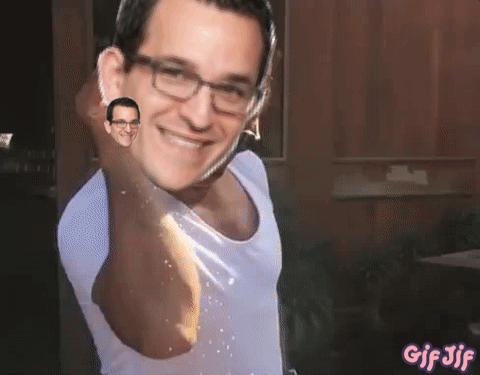Search
It’s the last thing you want to hear at your employee-client’s deposition

Yesterday, at approximately 5:18 PM EDT, all of the associates at my law firm received the same email. It was from one of my partners, encouraging them to sign up to receive daily updates to this blog via email.
“You will learn something from him nearly every day of the week,” wrote my partner.
So, let’s see if we can teach them something — something, other than Eric knows how to make one hella-creepy selfie saltbae gif.
How do you prove race discrimination?
Plaintiff Linda Diane Cobb filed a race discrimination lawsuit against the State of Tennessee. In that lawsuit, Ms. Cobb (white) claimed that her supervisor, Constance Baker (African-American), favored two of Ms. Cobb’s co-workers (African-American, Latina) over Ms. Cobb. For example…
- the two co-workers were allegedly allowed to switch desks whenever they wanted, but Ms. Cobb was not;
- Ms. Baker allegedly yelled across the room at Ms. Cobb, but never her co-workers; and
- one of the co-workers allegedly received holiday pay for MLK Day when Ms. Cobb did not.
Now, where did I put my side-eye gif. Oh, here it is.
Oh, you’re skeptical of the merits of this race discrimination claim as well? Come on, folks. Let’s give it a chance. The law is clear that if race motivates an employment decision or alters the plaintiff’s working conditions, then that would be unlawful discrimination. So, let’s give Ms. Cobb her due.
Well, not like this. Actually, the opposite of this.
Anyway, here’s how the court in Cobb v. State of Tennessee (opinion here) summarized some of Ms. Cobb’s deposition testimony:
When asked whether the harassment she experienced was based on race, at one point, Ms. Cobb said it was not. She admitted that, to her knowledge, no one at work ever said anything racist to her or about her. In fact, she never heard any workplace comments about white people. She agreed that Ms. Martin had never said anything threatening, racial, or derogatory to her.
All that’s missing now is a balm and the Maestro. Well, that and a facepalm sturdy rebuke from the court:
In support of their motion for summary judgment, the State Defendants asserted that it was undisputed that the alleged hostile work environment was not racially motivated, citing Ms. Cobb’s admission in her deposition. In response, Ms. Cobb simply denied the assertion with no citation to the record. Based on her response, the trial court deemed the asserted fact undisputed.
Ms. Cobb now claims that her testimony was taken out of context and other portions of her deposition support her claim that the harassment was based on race. But Ms. Cobb neglected to bring this deposition testimony to the attention of the trial court in response to the motions for summary judgment. Belatedly, when the State’s motion was argued, Ms. Cobb’s attorney asked the court to consider her deposition testimony but failed to direct the court to any specific testimony which he contended created a material factual dispute.
But, wait a minute! I just read in the Court’s opinion that Ms. Cobb was fired after being deposed. Surely, that must support a race-discrimination claim. Retaliation? Something, right?!? School us, Court of Appeals of Tennessee at Nashville:
While it would appear obvious that termination is a “material and adverse change in the terms and conditions of employment,” her attorney conceded in the trial court that her termination was not a relevant adverse employment action. Defendants asserted, and Ms. Cobb admitted, that it was undisputed that Ms. Cobb was terminated solely because of HIPAA violations. If there was any confusion, Ms. Cobb’s attorney clarified the point during oral argument on the State Defendants’ motion for summary judgment. He acknowledged that he could not argue that the “firing was part of this discrimination.”
Great googly-moogly!
I also have some takeaways for you.
And since I’m feeling rather charitable…
- To my management-side employment-law crusaders. Always ask the plaintiff about the role that his or her protected class played in whatever adverse employment action is complained of. You never know when the plaintiff will, well, just ask the State of Tennessee
- And for my friends on the plaintiff side of the v. Never underestimate the importance of reminding your client that, at no time — never — should he or she admit that anything other than his or her protected class motivated the employer to do whatever bad act brought this client to you. “When I say hello, Mr. Thompson…”
- Never include a selfie saltbae gif in an electronic brief filed in federal court. At least, so I’m told. Probably.
 The Employer Handbook Blog
The Employer Handbook Blog


